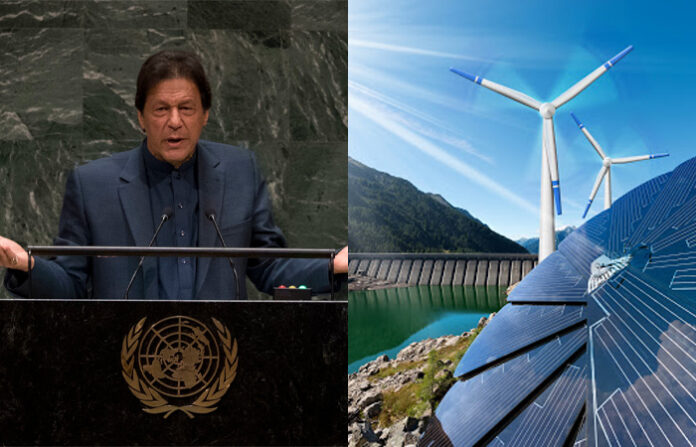Prime Minister Imran Khan on Saturday told the United Nations’ climate change summit that Pakistan is targeting 60 percent renewable energy by 2030 as part of its goal of mitigating the devastating effects of climate change.
The PM also declared in his address to the summit that by 2030, 30 percent of all vehicles in his country would also operate on electricity.
The Prime Minister said, “I assure you that Pakistan will do its best to contribute to mitigating the effects of climate change.”
He clarified that while the contribution of Pakistan to global carbon emissions was scarce, it remained one of the country’s most vulnerable to climate change.
“Pakistan is the country with less than 1% of global emissions, but unfortunately, we are the fifth most vulnerable to climate change,” said PM Imran Khan.
Pakistan’s decision to use “Nature-based Solutions” to counter the impact of climate change was highlighted by the premier. Over the next three years, this will entail planting 10 billion trees and growing the number of national parks and protected areas across the country.
The Prime Minister also declared, in a similar vein, the decision of his government to steadily suspend the country’s reliance on coal-based electricity.
“Two coal-fired projects that were supposed to produce 2,600MW of energy have already been scrapped,” he said before explaining that Pakistan will replace these projects with hydroelectricity.
To mark the fifth anniversary of the Paris Agreement, UN Secretary-General Antonio Guterres held the summit as a “Global Milestone Gathering”. It will act as a sort of prequel to the November 2021 UN Climate Change Conference in Glasgow.


